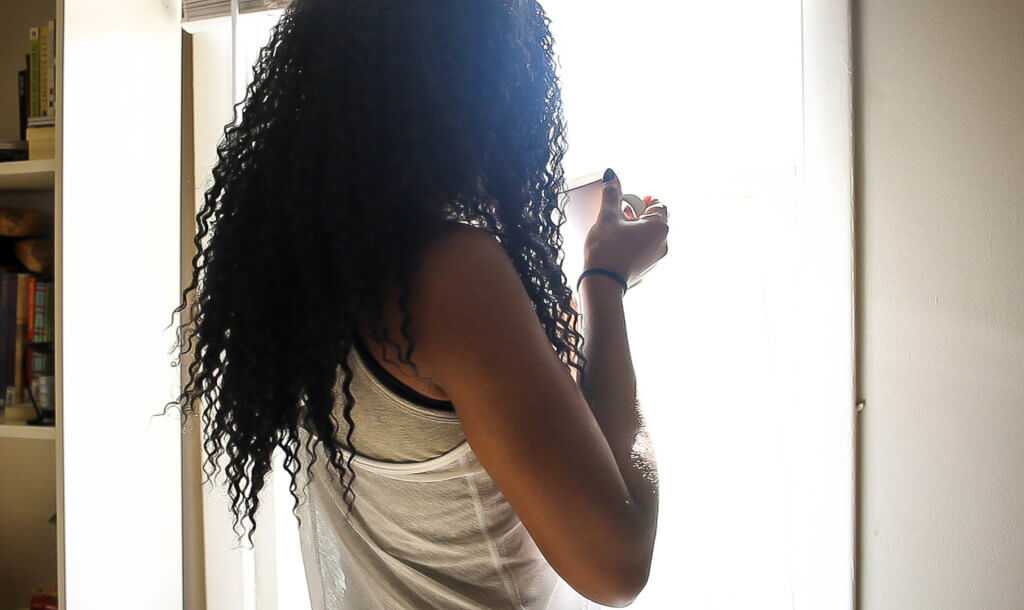
I finished college in December 2015, a semester before the rest of my classmates and friends, and moved back in with my parents. For reference, my parents’ home is about an hour and a half from my college, in a mountainous suburban area where the most noise we get is from birds chirping. I went to a big college in the city where I was lulled to sleep nightly by the sounds of cars honking and drunk people yelling. Needless to say, my transition home was a bit of an adjustment.
Growing up, my family hardly talked about mental health/illness or feelings of depression or anxiety. Share on XThe first month was fine. By month three, however, I found myself lethargic, hopeless, and generally uninterested in everything. My days were filled with mindlessly binge watching whatever was on Netflix and sleeping. My nights were no different and eventually, days merged into weeks. When I finally looked up, it had been months since I had any contact with someone from my college life.
What I didn’t know then was that I was experiencing something called post-grad depression. After a particularly rough week, I googled my symptoms and came across a bunch of articles that listed my symptoms with unparalleled accuracy and could put into words exactly what I was feeling.
Yet, even with the words glaring at me, I didn’t want to believe it. Not because it wasn’t plausible, but because mental illnesses didn’t happen to people like me.
Growing up, my family hardly talked about mental health/illness or feelings of depression or anxiety. On the rare occasion it was brought up, it was a character flaw. Mental illness was seen as an infliction that must be pitied, rather than a serious issue that those who suffer from have no control over. As I’ve reflected on my own experiences with depression and identified similar behaviors in my family members, I’m left wondering why we don’t talk about mental health in Caribbean families.
I think a large part of this lack of conversation is the inaccurate view that mental illness diagnosis is strictly an oddity of Western culture. One conversation with my parents that truly resonated with me discussed how illnesses like bipolar disorder, depression, schizophrenia are not diagnosed in the Caribbean, but as soon as you come to America there’s not only a diagnosis, but a prescription for everything. “It’s all a money-making scheme,” I vividly remember an aunt saying once.
Whether this rings true — Western culture’s obsession with overdiagnosing and overprescribing — is not of concern. Not talking about mental health is contributes more to the stigmatization of those suffering from various illnesses and continues to decrease the likelihood that those suffering ask for help. Almost overnight, I went from being a social butterfly to a recluse, in part because I didn’t know how to ask for help. I knew something was wrong, but I didn’t want to admit it for fear of seeming ungrateful or crazy. I can’t help but wonder if mental health were more of an open topic in my home, would I have struggled as hard and for as long as I did? Would I have been better equipped to deal with my struggle?
It’s important now more than ever that we open up conversations around mental health and treatment. The World Health Organization estimates that one in four people suffer from some kind of mental disorder, meaning this issue is rapidly affecting more and more of us. We need to move from a culture of shame and ridicule to one that prioritizes vulnerability and access. This begins by first challenging our assumptions about mental health and mental illness. Why are we so quick to label someone “mad” or “crazy?” Why do we believe those who struggle with mental illnesses are worth being stigmatized and alienated?
Once we understand our own biases, we can begin the work to move towards acceptance and either seeking help ourselves or helping others seek help. It’s one of the only ways we can move forward, not just as a culture, but as a community.

Leave a Reply